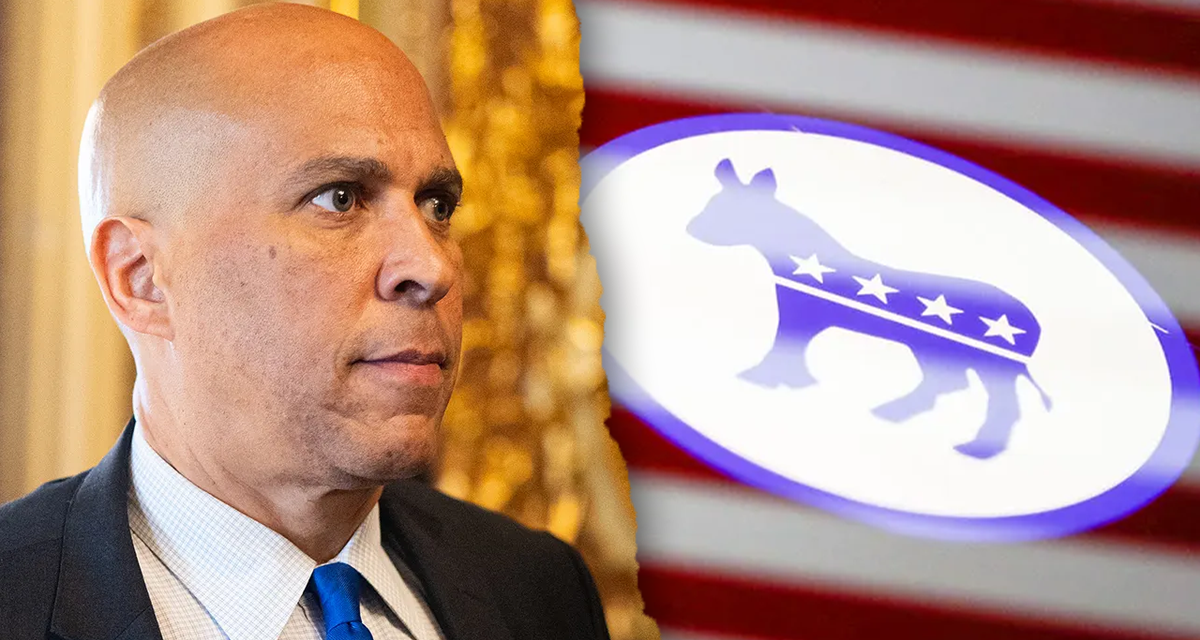In an attempt to elevate his profile within the Democratic party and position himself for a future presidential run, Senator Cory Booker of New Jersey has recently undertaken a series of bold actions that could backfire and embarrass the party. As an influential figure in a deeply divided political landscape, Booker’s strategies are under scrutiny as party members assess their implications for the upcoming elections.
One of Booker’s latest initiatives has been his vocal support for the ongoing struggles surrounding issues like climate change, police reform, and social justice. However, while many believe these are noble causes, some critics argue that his efforts may be more about maintaining visibility than achieving meaningful change. By weaving in personal anecdotes and passionate speeches, he has sought to connect with the grassroots, but detractors see his methods as sensational and self-serving.
Booker’s rise within the Democratic circles can be attributed to his charismatic persona and ability to communicate effectively. Still, critics are growing weary of his flashy tactics. These moves, they argue, seem more like political theater than substantive reform. His decision to publicly embrace divisive topics could cultivate friction with more moderate Democrats who fear that extreme viewpoints could jeopardize the party’s chances in swing states.
The current political climate is exceptionally charged, and every action by public figures is scrutinized. Booker’s supporters would argue that his focus on progressive issues is commendable, especially at a time when many Americans are clamoring for bold action on crucial matters. However, a significant faction of the party perceives these endeavors as risky, especially considering the tenuous balance Democrats must maintain to retain control in Congress.
Moreover, Booker’s approach risks alienating centrist voters who have increasingly gravitated away from the Democratic party in past elections. The 2022 midterms highlighted this growing concern as multiple districts, once believed to be solidly blue, swung towards Republican candidates largely due to their moderate stances that seemed more aligned with the electorate’s desires. In contrast, Tasking the narrative with aggressive liberal ideals could push these voters into the opposing camp.
Booker has also been taking stances on international issues, notably the conflict in Ukraine and the ongoing tensions in the Middle East. While he positions himself as a statesman with a global perspective, there have been concerns among party members about whether these positions resonate with voters back home. Issues like inflation, healthcare, and job security are at the forefront of voters’ minds, and some party members argue that Booker should focus on these pressing domestic issues rather than foreign policy maneuvers.
Another concern is the potential fallout from his recent engagement with groups that are viewed as radical by segments of the public. While seeking to elevate marginalized voices is vital, the choice to align more closely with contentious organizations can prove problematic. Such decisions could provide opposition parties with ammunition, allowing them to paint the Democrats as out of touch with mainstream values. The typical voter is not necessarily looking for radical progressive changes but rather sensible, practical solutions.
As Senator Booker continues on this path, he must weigh the costs and benefits of his actions. Early presidential aspirants often revel in a narrative of change and transformation, but that same narrative can lead to perilous terrain if not navigated carefully. It is crucial for politicians, especially those as visible as Booker, to strike a balance between advocating for visionary reforms and recognizing the realities and priorities of their constituents.
Furthermore, in a party striving to mobilize and energize its base, overly theatrical gestures can be perceived as out of touch or even contrived. With multiple Democratic leaders already facing skepticism about their ability to address core issues effectively, Booker’s untraditional approaches could exacerbate this sentiment. The party’s progressives often advocate for revolutionary changes in many sectors, but these ideologies must be presented in a way that resonates with the objectives and concerns of a broader electorate.
Internally, some Democrats are expressing concern that Booker’s latest high-profile moves could create divisions within the party. While factions of the party rally around different platforms—whether moderate or progressive—Booker’s style of advocacy could inadvertently alienate essential voting blocs, including independents, who remain pivotal in deciding the outcome of elections.
As the Democratic party prepares for the future, it is increasingly important to promote unity and a shared vision. By promoting divisive subject matter as central tenets of his campaign, Booker could contribute to disarray within the party. If established leaders can’t maintain harmony and consensus, they risk significant losses in critical upcoming contests. As past campaigns have shown, division and discord can lead to a spectacular downfall, especially when faced with the formidable might of the Republican party, which has united its base around core tenets.
In moving forward, Booker will need to reflect on past political missteps and how they might resonate with today’s electorate. His progressive values undoubtedly resonate with many, but he must also understand that the path to effective governance requires a willingness to embrace diverse perspectives and an understanding of the electorate’s needs. Should he continue down this audacious lane without a strategic, moderated approach, he may not only jeopardize his political future but also inadvertently create challenges for fellow Democrats.
The coming months will reveal whether Cory Booker’s escapades will indeed alienate key voter segments and tarnish his party’s image. It is essential for his colleagues within the Democratic circle to keep a watchful eye on the direction he takes, considering its potential ramifications for the party’s stability and unity.
Ultimately, while Cory Booker’s efforts to elevate critical issues in public discourse could be pivotal, the approach he chooses to undertake will determine whether he stands as a progressive champion or a source of embarrassment for the Democratic party.
































